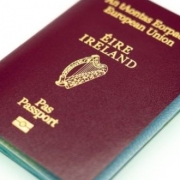The Department of Justice has provided up to date statistics from January 2022 to June 2022 in relation to, Residency and EU Treaty Rights, Visa, Citizenship statistics, International protection, and Removal/Deportation. The statistics were broken down by nationality, gender, and age group.
In relation to EU Treaty Rights Applications from January to June 2022, the data shows that nationals from Brazil, South Africa, and Pakistan were the top nationalities of applications received by the Department of Justice. 1356 applications were received from Brazil, 240 from Pakistan, and 153 from South Africa.
The statistics found that nationals from India, Egypt, and China were the top nationalities for Long Term Residency Applications. 30 applications for Indian nationals, 26 applications for Egyptian nationals, and 25 for Chinese nationals (including Hong Kong).
The total visas decided from January to June 2022 were primarily from India, Nigeria, and Turkey. With 21535 visas from Indian nationals, 3396 visas from Nigerian nationals, and 3019 visas from Turkish nationals. In total, most of the visas granted were for Indian (20736 visas), Turkish (2812 visas), and Chinese nationals (2477 visas). The most refused visas were for nationals from Nigeria (1568), India (799), and Pakistan (541), with an overall number of 5825 visas refused. The total decided re-entry visas from January to June 2022 were from Indian, Pakistani and Egyptian nationals.
From January to June 2022, there were 7039 citizenship certificates issued, mainly in respect of United Kingdom, Indian, and Pakistani nationals.
In total, there were 6495 applications received relating to International Protection Applications for 2022. Mainly from Georgia (1811), Somalia (938), and Algeria (698). Out of those applications, there were 1037 applications that have been approved, primarily from Somalia, Afghanistan, and Zimbabwe. Moreover, 1657 applications were refused primarily from Nigeria (216), Georgia (216), Zimbabwe (204).
In relation to Family Reunification Applications, there were 1137 applications submitted from January to June 2022, mainly from nationals of Somalia (489), Afghanistan (247), and Syria (69). 1911 applications for access to the labour market were submitted from January to June 2022, mainly from Somalia, Georgia, and Nigeria nationals.
There were 23 total removals effected, primarily from Romania, Lithuania, and Poland nationals. 54 deportations effected primarily from Pakistan, Nigeria, and Georgia nationals.
The book for the full statistics can be found here: https://www.irishimmigration.ie/wp-content/uploads/2023/01/Mid-Year-Review-Statistics-Booklet-2022.pdf
This blog article has been prepared on the basis of current immigration law and policy, which is subject to change. Please keep an eye on our blog and Facebook page where articles relating to updates and changes in immigration law and policy are regularly posted.



